Essayer OR - Gratuit
SPECIAL HOBBY SAAB J-21A Review
Scale Aircraft Modelling
|November 2022
From the late 1930s and early 1940s, with thewar in Europe raging around them andedging ever closer to its borders, the Flygvapnet had ordered Seversky P-35A aircraft, alongside Vultee Vanguards, but only sixty of the former and none of the latter were received.


Fiercely independent and determined to remain not only neutral, but secure, Sweden took its lessons from the warring world around it and used its resources and not insubstantial intellect and imagination to forge a strong military and air force and became more determined to create its own military aircraft, realising the dangers inherent upon depending upon others. Of their two fighting products, the FFVS J-22 and the SAAB J-21, it was the latter that showed the most promise and innovation.

Taking into account the terrain and the need for both a fighter and ground attack aircraft, a twin-boom design was approved, with a pusher engine, providing good forward visibility and a facility to load lots of guns into the nose, together with a wide tricycle undercarriage and all of the advantages that implied. Because of the pusher engine, an ejection seat was designed from the outset. This was actually powered by gunpowder, having been developed by Swedish gun manufacturer Bofors!

Cette histoire est tirée de l'édition November 2022 de Scale Aircraft Modelling.
Abonnez-vous à Magzter GOLD pour accéder à des milliers d'histoires premium sélectionnées et à plus de 9 000 magazines et journaux.
Déjà abonné ? Se connecter
PLUS D'HISTOIRES DE Scale Aircraft Modelling
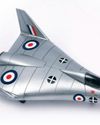
Scale Aircraft Modelling
Mustard
BAC's Low Speed Research Vehicle
2 mins
April 2023
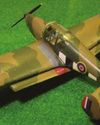
Scale Aircraft Modelling
KOVOZAVODY PROSTEJOV (KP) 1 Was Monty's Triple'
Brian Derbyshire
5 mins
November 2022
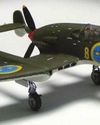
Scale Aircraft Modelling
SPECIAL HOBBY SAAB J-21A Review
From the late 1930s and early 1940s, with thewar in Europe raging around them andedging ever closer to its borders, the Flygvapnet had ordered Seversky P-35A aircraft, alongside Vultee Vanguards, but only sixty of the former and none of the latter were received.
8 mins
November 2022
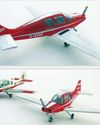
Scale Aircraft Modelling
VFR MODELS Beagle B.121 Pup
This is the first 3D printed kit I have come across and it is really rather fine.
3 mins
November 2022
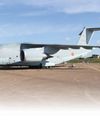
Scale Aircraft Modelling
Hearts in the sky RIAT RETURNS
After a nearly three-year hiatus RIAT returned to our skies with a hot show in every sense of the word. SAM’s Mike Verier and Ray Ball were there.
2 mins
November 2022
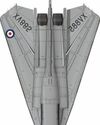
Scale Aircraft Modelling
Colour Conundrum
A Cancellation Conundrum - The RAF F-111s That Might Have Been Part 1
17 mins
November 2022

Scale Aircraft Modelling
COPPER CAUDRON Caudron G.Ill in 1/32
Copper State Models have carved a name for themselves in the last few years producing high quality plastic kits of World War One subjects.
10 mins
November 2022
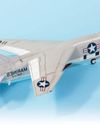
Scale Aircraft Modelling
Academy RF-8A Crusader Conversion in 1/72
USMC squadron VMCJ-2 used six RF-8As during the Crisis (designation F8U-1P until September 1962), with others held in reserve, two flying out of Guantanamo Bay, and four out of NAS Key West.
20 mins
November 2022
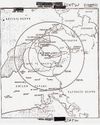
Scale Aircraft Modelling
The Cuban Missile Crisis
Modelling US reconnaissance assets in 1/72 Part 2: The Nuclear Confrontation
9 mins
November 2022
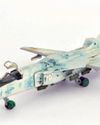
Scale Aircraft Modelling
UKRAINIAT striker
The Sukhoi Su-24 is an all-weather attack aircraft capable of supersonic speeds and characterised by its side-by-side pilot/navigator seating and its variable geometry wing.
4 mins
November 2022
Translate
Change font size

